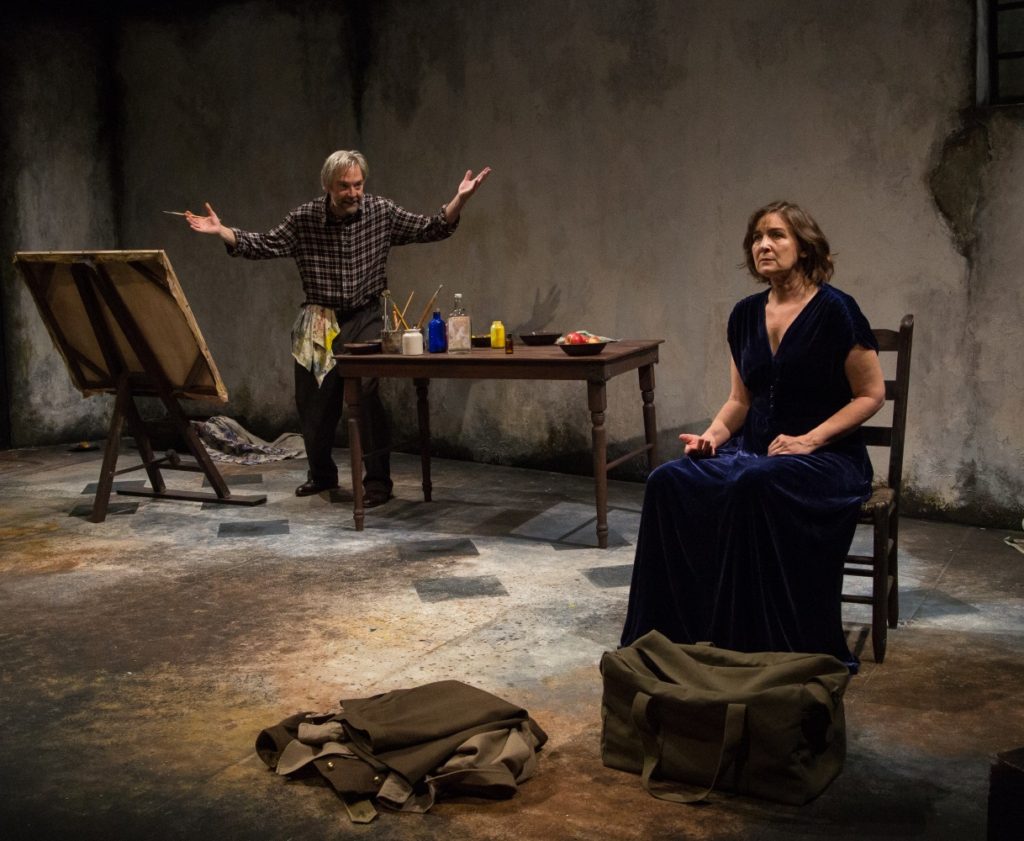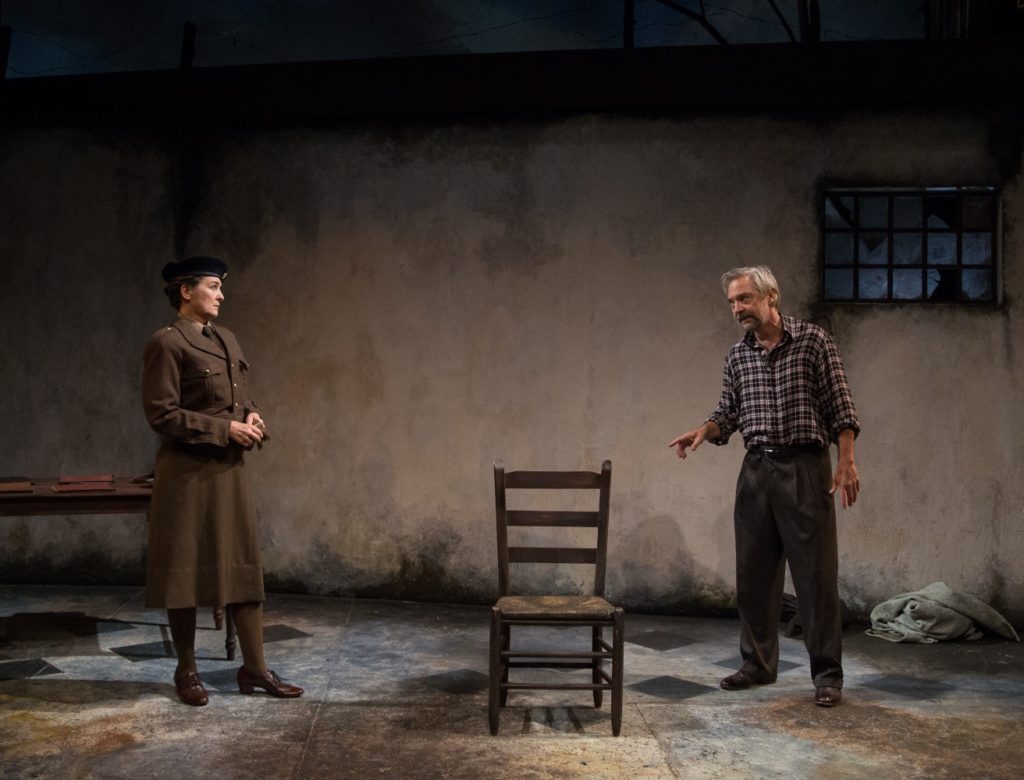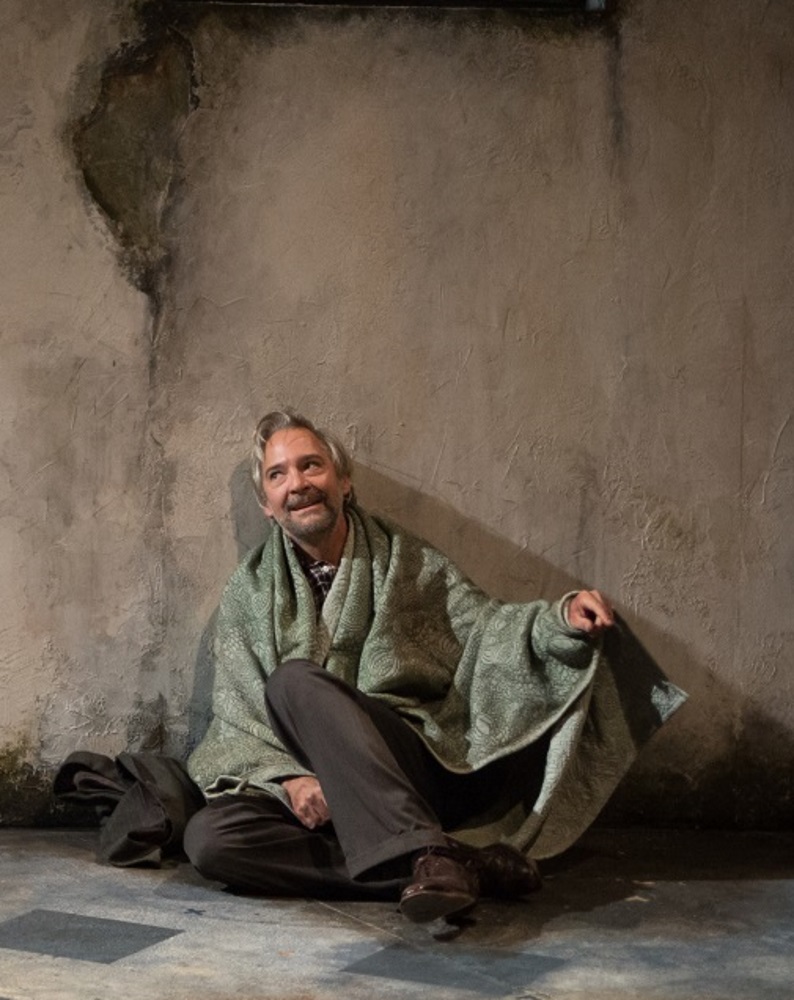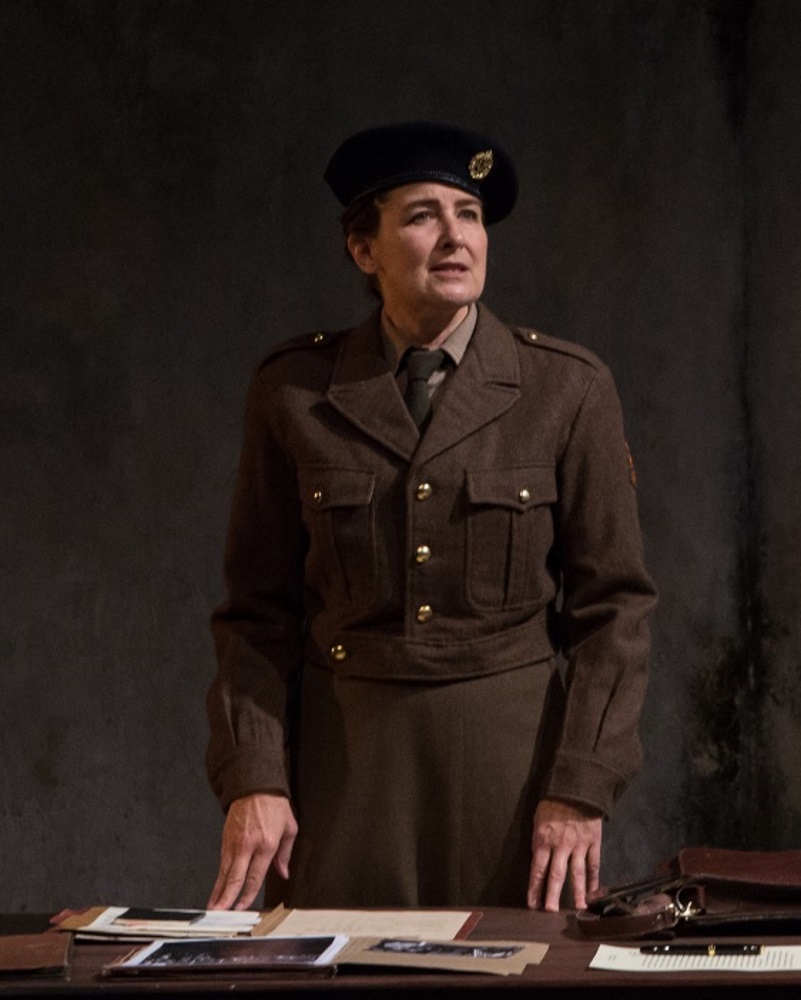“Consider Lucifer,” says Han van Meegeren, huddled against the grimy wall of his prison cell in postwar Holland. He’s awaiting a summary trial and probable execution for allegedly having sold a previously unknown Vermeer to a Nazi officer during the occupation.
The Bakelite Masterpiece, by Canadian playwright Kate Cayley, is now playing (through October 23) at the Berkshire Theatre Group’s Unicorn Theatre in Stockbridge, a co-production with WAM Theatre, the Berkshire company dedicated to uplifting women artists and supporting organizations that serve women and girls. It’s directed by WAM’s co-founder, Kristin van Ginhoven, who has a more-than-professional connection to the script, as she’s the Canadian daughter of Dutch immigrants.
 The short, tense two-person drama stars David Adkins and Corinna May, the region’s most prominent onstage couple. Under van Ginhoven’s sensitive guidance, they deliver an exquisitely interlocking pair of performances. Juliana von Haubrich designed the monochrome set, a pallid cement cubicle beneath a skyline of skeletal buildings, subtly lit by Lily Fossner, with nicely contrasting costumes by Deborah A. Brothers.
The short, tense two-person drama stars David Adkins and Corinna May, the region’s most prominent onstage couple. Under van Ginhoven’s sensitive guidance, they deliver an exquisitely interlocking pair of performances. Juliana von Haubrich designed the monochrome set, a pallid cement cubicle beneath a skyline of skeletal buildings, subtly lit by Lily Fossner, with nicely contrasting costumes by Deborah A. Brothers.
Han is confronted by Geert Piller, an officer in the Dutch government’s bureau tasked with repatriating looted artworks or at least bringing to justice the collaborators who facilitated the looting. In May’s finely detailed reading, she’s buttoned-up in both senses — wrapped tight in a military uniform and just as rigid emotionally, scrupulously formal but stiff with anger. Han, by contrast, is spontaneous, impertinent and untidy, with a feral gaze, fearful but combative.
Han protests his innocence, his defense being that, yes, he sold the painting to Reichsmarschall Hermann Göring, but it was a fake, a brilliant forgery. He is an artist, but a self-confessed mediocrity, uninspired and derivative. He’s “a perfect fraud,” just like Lucifer, the fallen angel who, in Han’s view, defied God out of curiosity, just to see if he could get away with it. The Vermeer forgery, he says, was his masterpiece, painted with Bakelite, an early form of plastic that can mimic the qualities of antique oils, and passing it off as an Old Master was an act of defiance, not collaboration.
 “Okay,” says Geert in effect. “Prove it.” And she challenges him to paint something else in the style of Vermeer — her portrait.
“Okay,” says Geert in effect. “Prove it.” And she challenges him to paint something else in the style of Vermeer — her portrait.
It’s a life-or-death commission for him, and a life-changing challenge for her. She insists that the work be more than technically proficient. In order to pass muster it has to glow with the heartfelt honest humanity that suffused Vermeer’s portraits of women: the maid pouring milk from a pitcher, the housewife placidly sewing in her closet. He must paint a real woman, the way she says Vermeer painted — not the idea of a woman but “a living, breathing, sweating woman” who’s alive and has a beating heart. And in order to sit for the portrait, she herself must be revealed.
When she disrobes, shedding her uniform for a sinuous blue dress, we see the woman’s body beneath the officer’s façade, and he sees it too — he recognizes her in the way she tries so hard to avoid being seen. What’s at stake for Han, too, is recognition. It’s meaningless, he says, to be the greatest forger alive if no one recognizes his genius — which is probably why he has allowed himself to be caught, even though his life is now in jeopardy. His task, then, is not just to fool the eye, but to engage the heart.
The Bakelite Masterpiece is a wonderful piece of theater —witty, searching and profound, with two luminous performances in a finely etched production that, like the painting in question, goes beneath the surface to engage our hearts.
Photos by Emma Rothenberg-Ware
If you’d like to be notified of future posts, email StageStruck@crocker.com






